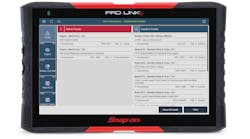I am heartened by things I am hearing out in the field.
Earlier this year at the Advanced Clean Transportation (ACT) Expo, a panel of OEM representatives responded to questions about what they would do if Phase 2 greenhouse gas (GHG) rules were altered or eliminated.
Basically, it sounds like they are going to stay the course. In part they cited fleets’ continuing demands for greater fuel economy even with diesel fuel prices at relatively low levels.
I am delighted that fleets see value in technologies and practices that improve miles per gallon (MPG). They are the ones that have to make the investment in these technologies which are often harder to justify when fuel prices are lower.
I think the savvy fleets know that fuel prices likely won’t stay low forever and that by investing today in new technologies they can get past any learning curve issues and be better prepared and more fuel efficient when fuel prices spike back up.
The truck makers speaking at ACT also indicated that they have already started working on the technologies that will be needed to meet the GHG Phase 2 ruling and aren’t likely to abandon the investments they have already made.
All of this is good news and reinforces for me that need to make sure all trucking industry stake holders not only have good information about what technologies are available, but also about their true fuel savings in the real world and about what actual payback periods are.
There also needs to be continued objective analysis of emerging technologies because as human beings we tend to get very excited when new cool things first come to the forefront and maybe lose our objectivity.
That is part of the reason we’ve started to issue Confidence Reports on things like two-truck platooning and variable engine-driven accessories. We believe fleets need to have information early in the development process of some of these technologies so they can have them on their radar screens given how rapidly technologies are evolving.
I think the industry is heading in the right direction in moving the average MPG number from 6.3 to 12. And I am thrilled that others are interested in keeping up the good work.



